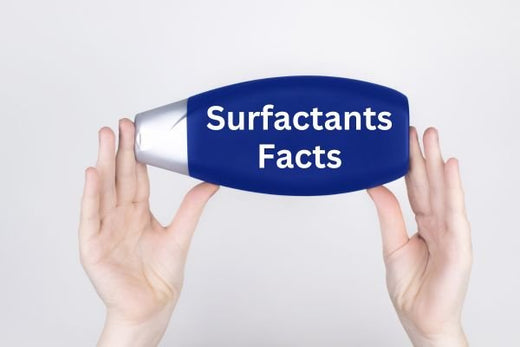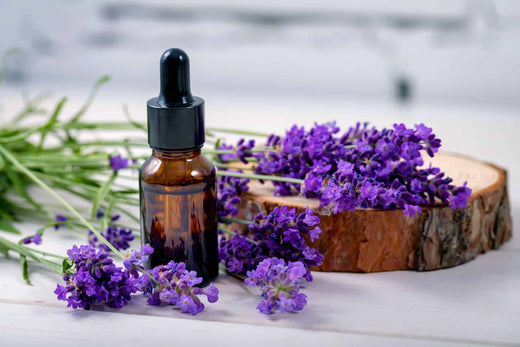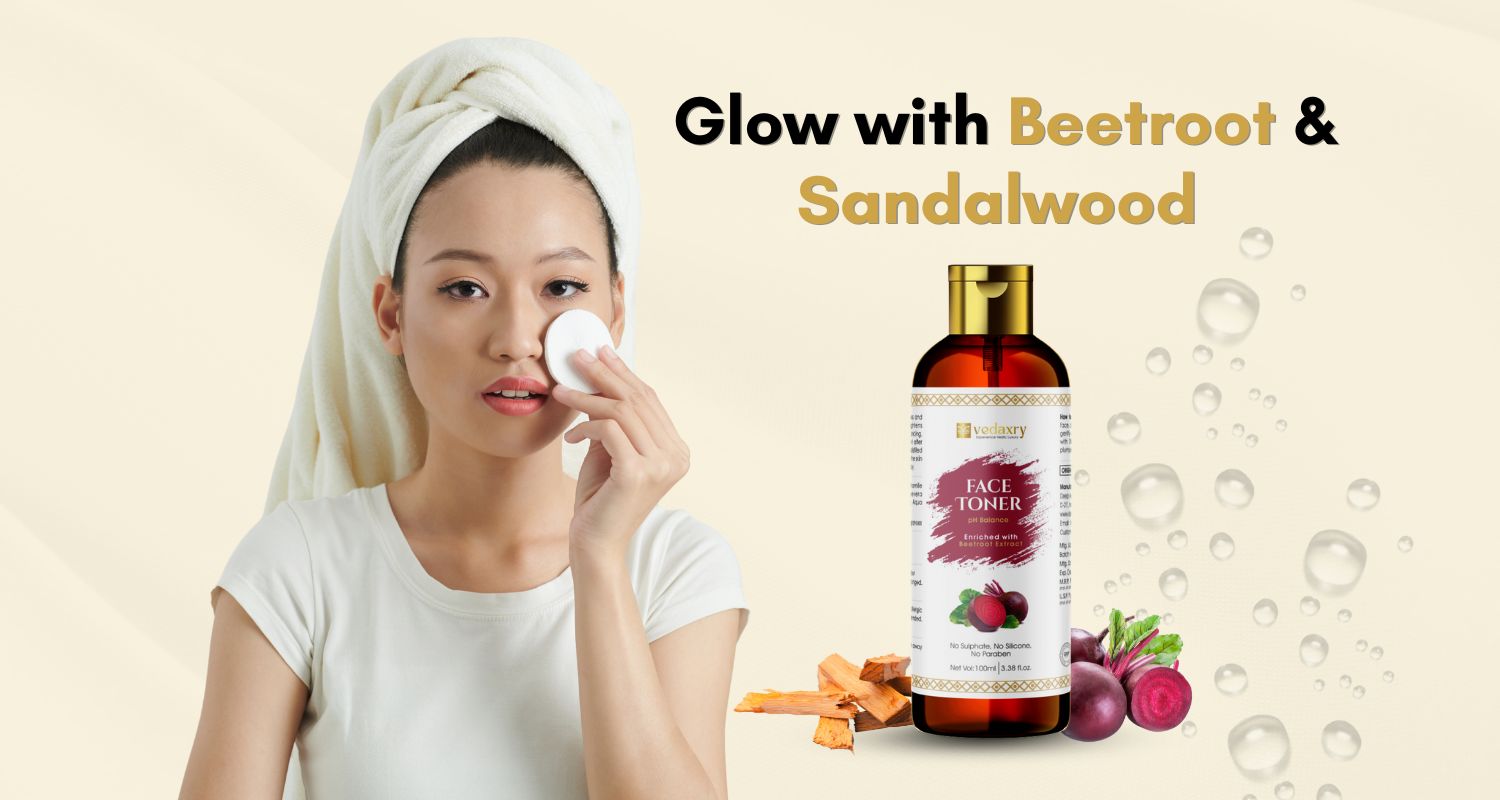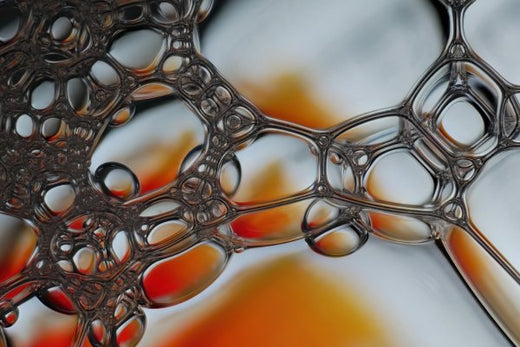Surfactants in Skin Care: A Comprehensive Guide

Surfactants are one of the most important yet controversial ingredients in skin care products. These compounds play a crucial role in cleansing formulations, allowing water and oil to mix and effectively remove dirt, excess oil, and impurities from the skin. However, not all surfactants are created equal. While some are gentle and beneficial, others can strip the skin of its natural moisture, causing dryness, irritation, and sensitivity.
This guide explores the different types of surfactants used in skin care, their functions, potential side effects, and how to choose the right surfactant-based products for your skin type.
What Are Surfactants?
Surfactants, or surface-active agents, are molecules that reduce surface tension between two substances, such as oil and water. This property makes them essential in cleansers, allowing them to emulsify oils and dirt, making it easier to rinse them away.
Surfactants consist of two main parts:
-
Hydrophilic (water-loving) head: Binds to water
-
Hydrophobic (oil-loving) tail: Binds to oils and dirt
When combined with water, surfactants form micelles, which encapsulate oil and dirt, lifting them off the skin and allowing them to be washed away.
Types of Surfactants in Skin Care
Surfactants can be categorized into four main groups based on their charge and function:
1. Anionic Surfactants
These surfactants have a negative charge, which makes them highly effective cleansers. However, they can be harsh on the skin, stripping natural oils and causing dryness and irritation.
Common anionic surfactants:
-
Sodium Lauryl Sulfate (SLS): Strong cleansing ability but known for irritation and dryness.
-
Sodium Laureth Sulfate (SLES): A milder version of SLS but can still be drying for sensitive skin.
-
Sodium Coco Sulfate: Derived from coconut oil, but still similar in structure to SLS.
Best for: Oily skin types (but can be too harsh for sensitive or dry skin).
2. Cationic Surfactants
These surfactants have a positive charge and are mostly used in conditioning products rather than cleansers. They help in reducing static and improving skin feel.
Common cationic surfactants:
-
Cetrimonium chloride: Found in conditioners and some skincare formulations.
-
Behentrimonium methosulfate: A mild conditioning agent derived from natural oils.
Best for: Conditioning and softening skin, but not commonly used as primary cleansers.
3. Non-Ionic Surfactants
These surfactants have no charge, making them much gentler on the skin compared to anionic surfactants. They are commonly used in mild cleansers and micellar waters.
Common non-ionic surfactants:
-
Decyl glucoside: Derived from sugar and coconut, extremely mild and eco-friendly.
-
Coco-glucoside: Gentle and biodegradable, ideal for sensitive skin.
-
Polysorbates (e.g., Polysorbate-20, Polysorbate-80): Often used to solubilize essential oils in skincare products.
Best for: Sensitive, dry, and normal skin types.
4. Amphoteric Surfactants
These surfactants carry both positive and negative charges, making them versatile and mild. They are often used alongside anionic surfactants to reduce harshness.
Common amphoteric surfactants:
-
Cocamidopropyl betaine: Derived from coconut oil, often used in sulfate-free cleansers.
-
Lauryl betaine: A mild foaming agent that enhances cleansing properties.
Best for: All skin types, especially sensitive skin.
Potential Side Effects of Harsh Surfactants
While surfactants are essential for cleansing, certain types (especially strong anionic surfactants) can have negative effects:
-
Skin dryness and tightness: Harsh surfactants can strip natural oils, leading to a compromised skin barrier.
-
Irritation and redness: Some surfactants, like SLS, are known to cause irritation, especially for those with sensitive skin.
-
Breakouts and sensitivity: Over-cleansing with strong surfactants can disrupt the skin’s microbiome, leading to acne and inflammation.
How to Choose the Right Surfactants for Your Skin Type
| Skin Type | Best Surfactants | Avoid |
|---|---|---|
| Oily Skin | Cocamidopropyl betaine, Decyl glucoside, SLES (mild) | SLS, Harsh anionic surfactants |
| Dry Skin | Coco-glucoside, Polysorbates, Amphoteric surfactants | SLS, SLES |
| Sensitive Skin | Decyl glucoside, Lauryl betaine, Cocamidopropyl betaine | SLS, Harsh anionic surfactants |
| Combination Skin | Mild non-ionic and amphoteric surfactants | SLS, High-foaming sulfates |
Sulfate-Free and Natural Alternatives
With the rise of clean beauty and eco-conscious skincare, many brands are now offering sulfate-free and gentle surfactant-based cleansers. Some of the best alternatives include:
-
Soapberry Extract: A natural surfactant from the Sapindus plant with gentle cleansing properties.
-
Yucca Root Extract: A mild, plant-based foaming agent suitable for sensitive skin.
-
Aloe Vera-Based Cleansers: Many natural brands use aloe vera as a base to help retain moisture while cleansing.
-
Ayurvedic Cleansers (e.g., Vedaxry Products): Many Ayurvedic skincare brands use herbal ingredients like Reetha (soapnut) and Shikakai for gentle cleansing without harsh surfactants.
Conclusion
Surfactants are essential ingredients in skincare, helping to cleanse and remove impurities. However, understanding their different types and effects is crucial in selecting the right products for your skin type. Opting for sulfate-free, mild, and natural surfactants can help maintain a healthy skin barrier while ensuring effective cleansing.
Always check ingredient labels and choose formulations that align with your skin’s needs, prioritizing gentle and eco-friendly options when possible. With the right knowledge, you can make informed decisions and keep your skin healthy and nourished.

Reviewed By
Dr. Sapna Kangotra
Senior Ayurveda Doctor




Comments